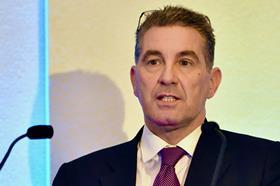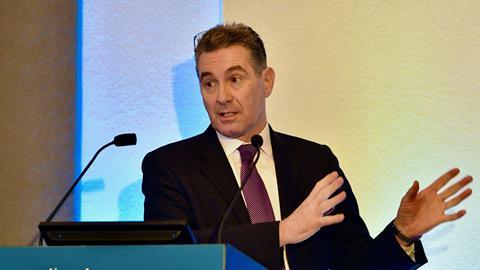There will be no let-up in the requirements made of law firms to prevent money laundering, the chief executive of the Solicitors Regulation Authority warned today.
Paul Philip told the Law Society's Risk and Compliance Annual Conference that the regulator has found itself as 'piggy in the middle' between the profession and the government. The regulator would help in any way it can, he said, insisting that firms should not be scared of their obligations – but he suggested that pressure from the government is behind the current push.
Firms are already required to produce risk assessments to prevent money laundering, and more than a dozen firms have been fined in the past year for failing to carry these out properly. The SRA has also prosecuted firms that wrongly declared they had a compliant risk assessment.
As of last December, UK government sanctions have also prevented law firms from providing trust services to anyone connected to Russia, unless that arrangement was already in place.
Philip said the most common request from firms when asked how the SRA could help was to stop adding to the AML regulatory burden – but that is not going to be possible for now.
‘The reality is we are piggy in the middle,’ he said. ‘Do we think there is a problem [for firms]? Absolutely. The vast majority of legal practices in England and Wales are in a relatively small business unit and I suspect – in fact I know – most people are just trying to catch up and be aware of what their obligations are.

‘For those firms you have nothing to fear from us. We will do our best to provide guidance.
‘There is nothing we can do to stop the onslaught of regulatory requirements coming from direct legislation which we are forced to implement. Arguably we are playing catch-up as we should have been doing this sort of thing a long time ago.’
Last June, the SRA imposed a new duty on 6,000 firms to provide data on the scale and potential risk of their work. Firms would be required to return a form providing information on their exposure, covering areas such as the value of work conducted for their largest single client and how much higher risk work they conduct.
Source of funds checks are proving to be a major burden on legal businesses. The SRA says firms should ‘go back as far as is needed’ to build a clear picture of how clients accumulated their money on the transaction.
The Economic Crime Bill, currently going through parliament, will place extra reliance on the SRA to prevent money laundering and Philip said the level of bureaucracy and regulation is likely to increase. The legislation would also give the SRA unlimited fining powers for firms that have facilitated economic crime.
‘Government pressure to drive through the economic agenda is just colossal,’ added Philip. ‘If we get those powers we would expect and would wish to use them. The level of fines for economic crime, particularly in the financial sanctions era, will increase radically.’
This article is now closed for comment.




























27 Readers' comments